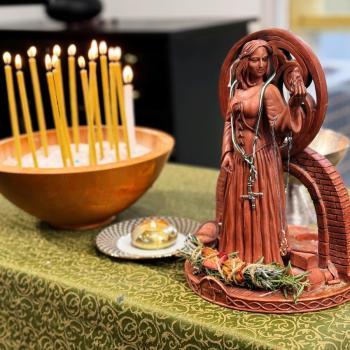Second, how does each religion say worship should be offered to God? Muslims deem worship of the Trinity to be polytheistic and thus blasphemous. Worship of Jesus -- whom they deem only human -- is anathema. Yet these beliefs are essential for Christian worship. One must worship God "in spirit and in truth" (John 4:24). Worship requires assent to the truth of God (the Trinity), belief in the gospel, trust in Jesus Christ, and submission to God's will. While Muslims emphasize submission to Allah ("Islam" means submission), they do not submit to the God revealed in the Bible. This exposes another irreconcilable difference between Islam and Christianity.
Third, what does each religion make of the other one? Muslims and Christians have historically tried to convert each other, since they both view adherents of other religions to be misguided. Islam seeks converts worldwide because it believes Allah is supreme over all and must be so recognized. Christians are commanded to take the gospel into all the nations and to baptize converts into the name of the triune God of the Bible (Matthew 28:18-20).
Neither Christianity nor Islam can logically endorse the other religion's distinctive claims and practices without denying its own.
Much more needs to be discussed concerning Muslim and Christian relations in a religiously pluralistic world. However, we must conclude that despite their common monotheism, Islam and Christianity have very different views of God, worship, and mission. Therefore, it is unreasonable to claim that they worship the same God. Although Islam and Christianity are both monotheistic, their views of God differ considerably.
 Douglas Groothuis is professor of philosophy at Denver Seminary and the author of numerous books, including Truth Decay: Defending Christianity against the Challenges of Postmodernism.
Douglas Groothuis is professor of philosophy at Denver Seminary and the author of numerous books, including Truth Decay: Defending Christianity against the Challenges of Postmodernism.
This originally appeared as "Do Christians and Muslims Worship the Same God?" Copyright © 2005 Douglas Groothuis. All rights reserved. International copyright secured. Reprinted with permission.
[1] See The Qur'an, Surah 112:1-4, which denies that God "begat" a son. Surah 4:171 commands Muslims to not say "three" with respect to God; see also Surah 5:73. However, the Qur'an claims that the Christian doctrine of Trinity affirms that it is comprised of the Father, the Son, and Mary (Surah 5:116). The Bible, however, never attributes deity to Mary. For more on how the Qur'an understands Jesus and the Trinity, see Chawkat Moucarry, The Prophet and the Messiah: An Arab Christian's Perspective on Islam and Christianity (Downers Grove, IL: InterVarsity Press, 2001), 184-195.
[2] See The Qur'an, Surah 5:115-18 where Jesus is reported to have denied his own deity; see also Surah 9:30-31.
[3] See Harold Netland, Dissonant Voices: Religious Pluralism and the Question of Truth (Vancouver, BC: Regent University Press, 1997), 89-90.
[4] See the Qur'an, Surah 36:54; see also Surah 82:19.




